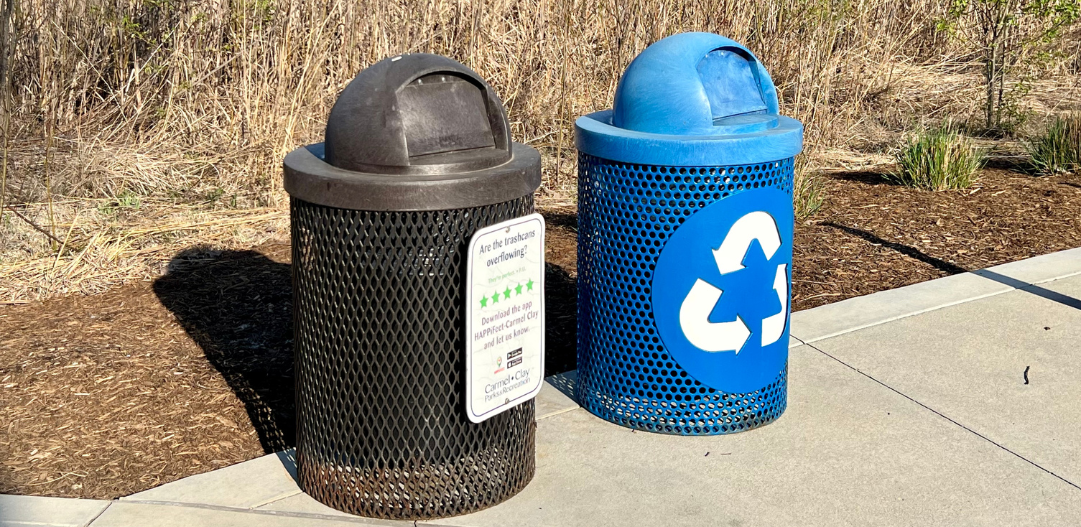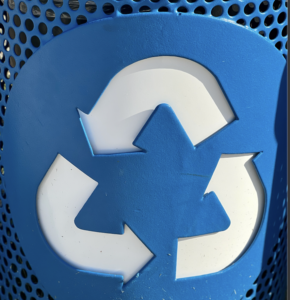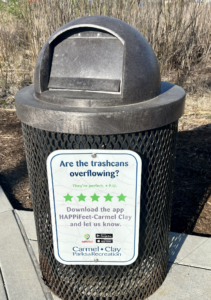
Recycling is a great low-effort way to help the environment. Still, not everything belongs in our parks’ blue bins.
Recycling things we wish could be recycled, even though they can’t, is called wishcycling. Most of us have either wishcycled before, or still do it. Oftentimes we don’t give a second thought when placing items in the recyclables. Did you know that recycling “guesswork” can have a negative impact on the whole recycling process?
To ensure your disposal efforts are actually green, and not just green in thought, read on to learn the dos and don’ts of recycling.
All in the Numbers
How do we know what can be recycled? One way to tell is by recycling numbers. Recycling numbers are a series of numbers from one through seven found on the bottom of most plastic containers. These numbers are used to describe what kind of plastic an item is made from, with the most commonly recyclable plastics being one and two.
 The Dos
The Dos
- Newspapers and magazines
- Cardboard
- Glass bottles and jars
- Tin, aluminum, and steel cans
- Rigid plastic containers
 The Don’ts
The Don’ts
- Styrofoam
- Fast food wrappers
- Receipts
- Plastic utensils
- Dirty plastic coffee cups (dried fat and sugar from whipped cream and sauces)
- Plastic bags, cling film, container labels
- Diapers, bagged pet waste
- Books, tissue paper, gift wrapping paper
Empty, Clean, and Dry!
One of the most important (and most often overlooked) rules of recycling is making sure the item is empty, clean, and dry. Cardboard Once cardboard or paper comes in contact with food waste or liquid, it can no longer be recycled. It only takes one greasy pizza box to ruin an entire bin of otherwise reusable material.
Quick Tips
- Replace the cap on empty bottles before recycling.
- Don’t crush your soda cans. It’s easier for the recycling center to sort aluminum cans when they aren’t crushed.
- Remove the labels from cans, bottles, and containers.
- Many stores have bins for uncommon recycling, like makeup containers, plastic bags, and electronics.
The act of recycling is a powerful one. Make sure your efforts are impactful for the right reasons. To learn more about how to be better stewards of our parks and natural resources, peruse our website or check out our suggested recycling resources below.
Sources:
- Republic Services Recycling Guide
- Recycling Simplified
- Recycling Global Statistics and Facts
- EPA
- Plastic Recycling Numbers
